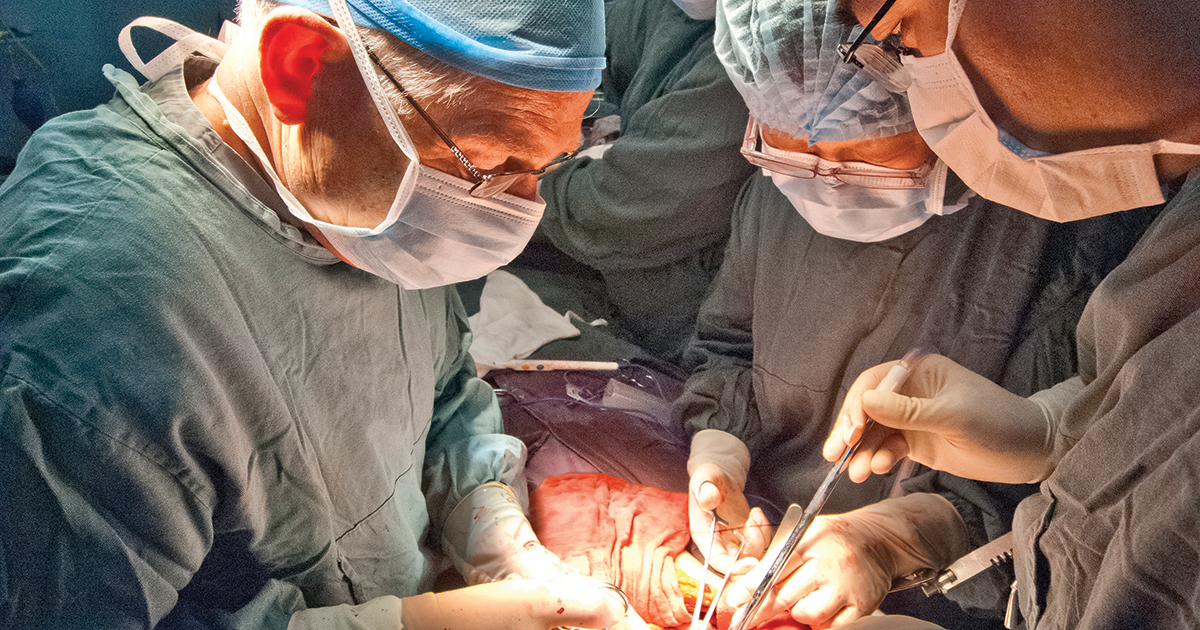Surgery may be an option for people with an early stage of pancreatic cancer. The surgeon usually removes only the part of the pancreas that has cancer. But, in some cases, the whole pancreas may be removed.
The type of surgery depends on the location of the tumor in the pancreas. Surgery to remove a tumor in the head of the pancreas is called a Whipple procedure. The Standard Whipple Procedure (or a modification of it called the Pylorus Preserving Whipple Procedure) is the most common type of surgery for pancreatic cancer. You and your surgeon may talk about the types of surgery and which may be right for you.
Whipple Procedure
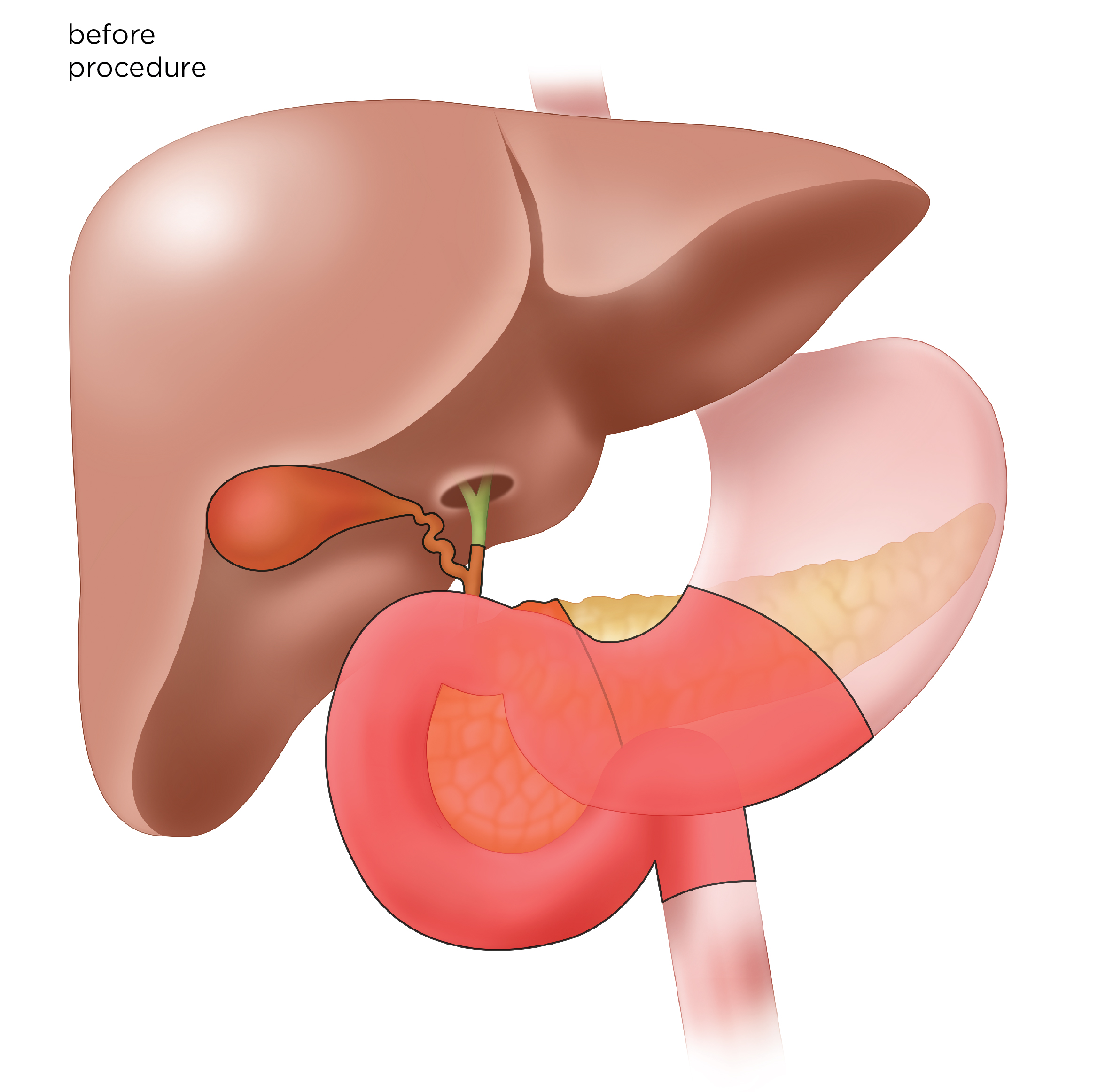
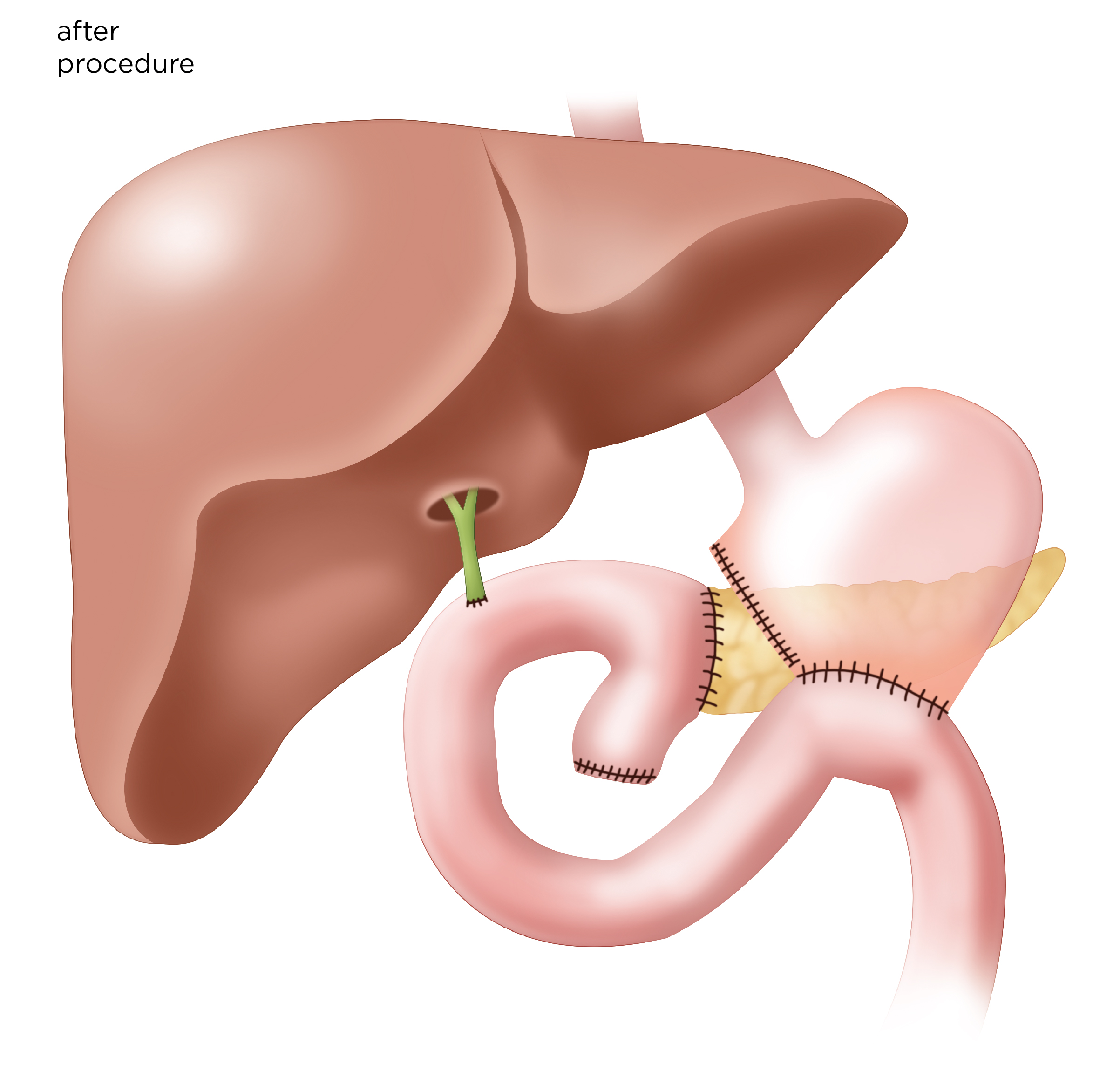
Pylorus Preserving Whipple Procedure
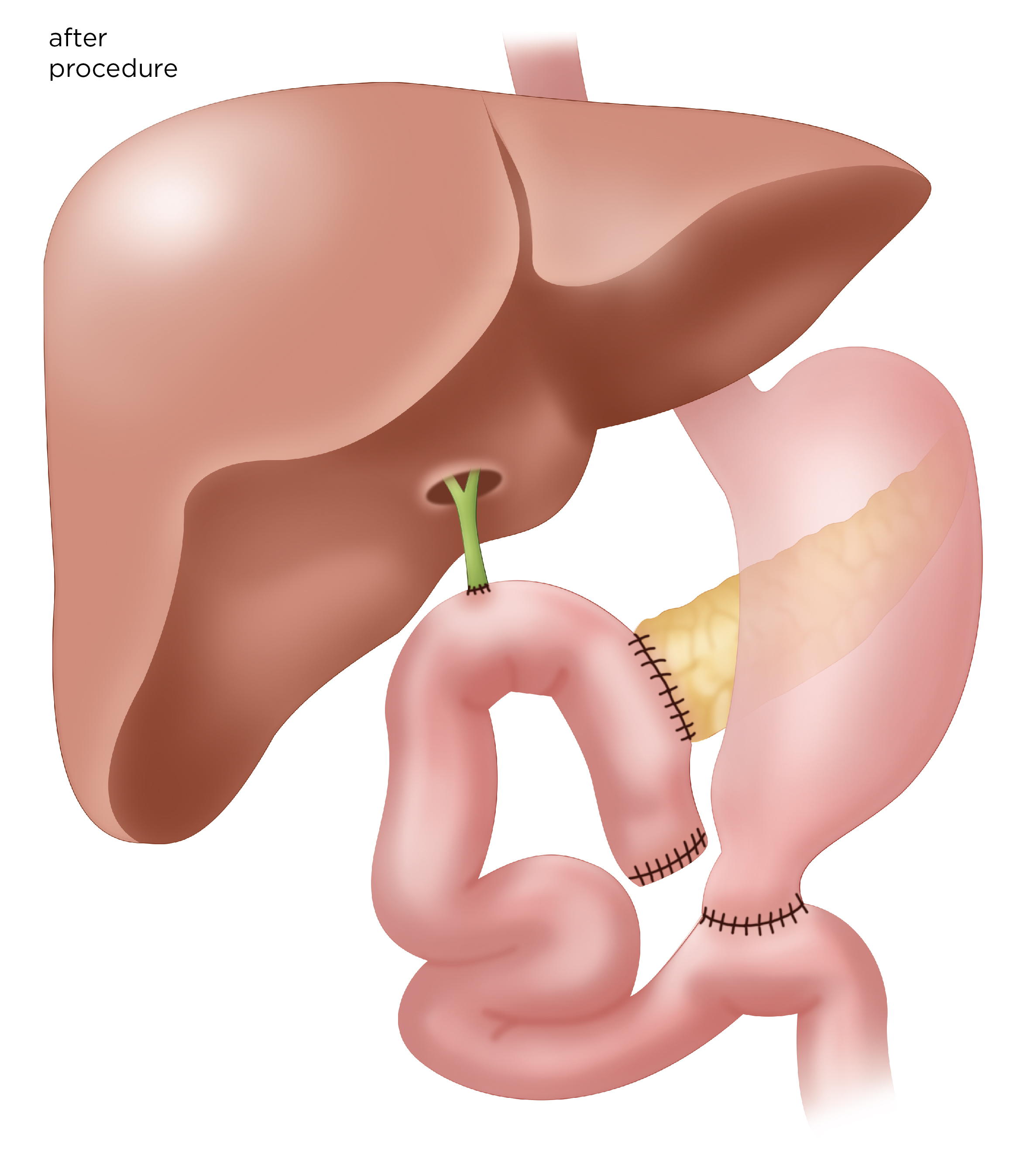
In addition to part of your pancreas, the surgeon may remove the following nearby tissues:
- Part of the stomach (Standard Whipple only), all of the duodenum (Standard Whipple only), or only part of the duodenum (Pylorus Preserving Whipple only). In the Pylorus Preserving Whipple Procedure, no stomach is removed.
- Gallbladder
- Part of the bile duct
If the cancer is in the body or tail of the pancreas instead of the head, the surgeon may remove your spleen and nearby lymph nodes, along with the part of the pancreas that contains the cancer. This is called a Distal Pancreatectomy.
Distal Pancreatectomy Procedure
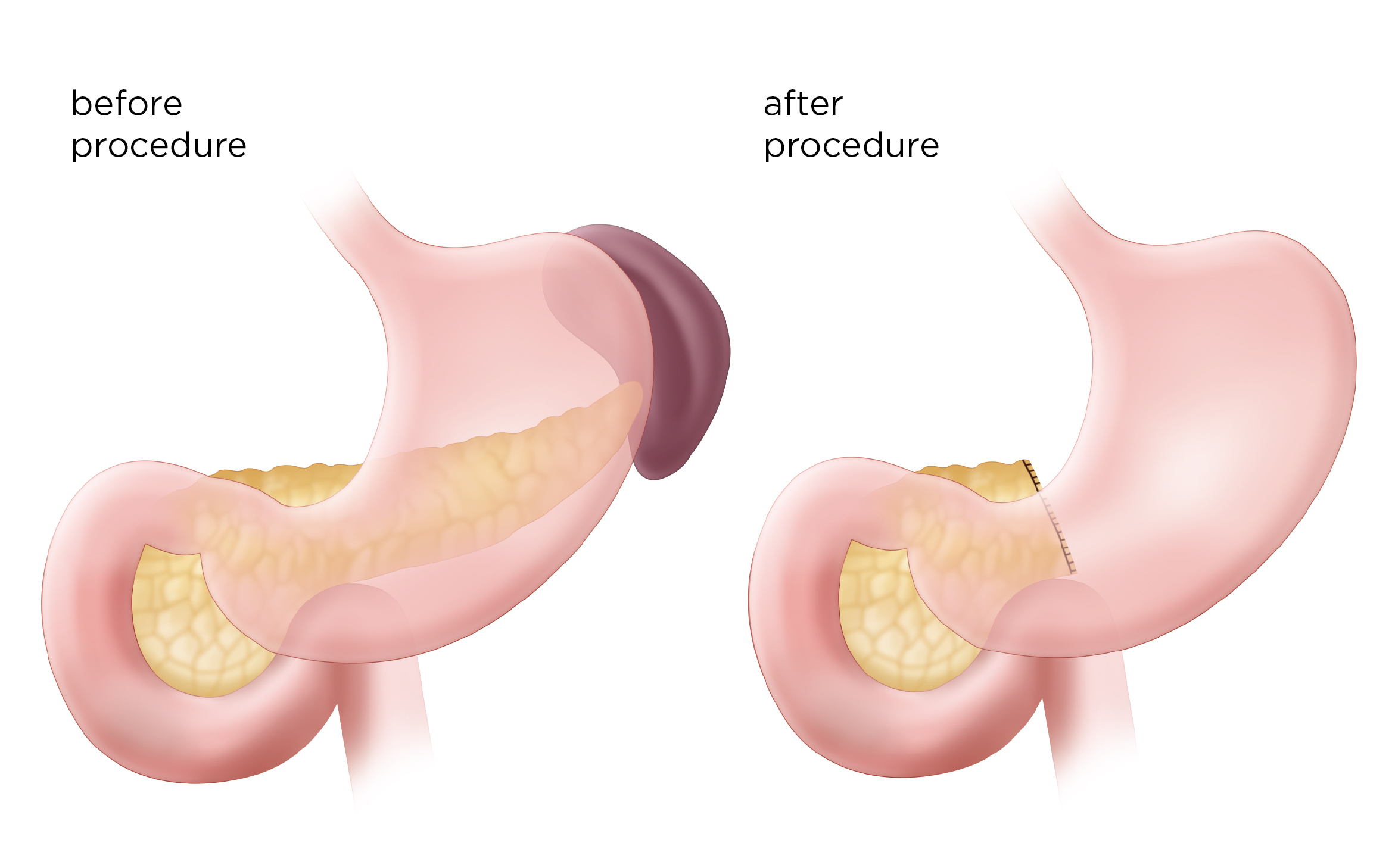
Surgery for pancreatic cancer is a major operation. You will need to stay in the hospital for 7-10 days afterward. Your health care team will watch for signs of bleeding, infection, or other problems.
It takes time to heal after surgery, and the time needed to recover is different for each person. You may have pain or discomfort for the first few days. Medicine can help control your pain. Before surgery, you should discuss the plan for pain relief with your health care team. After surgery, they can adjust the plan if you need more pain control.
It’s common to feel weak or tired for a while. You may need to rest at home for one to three months after leaving the hospital.
After surgery, it may be hard to digest food. For four to six weeks after Whipple surgery, you may feel bloated or full. A dietitian can help you change your diet to reduce your discomfort. Problems with eating usually go away within three months.
